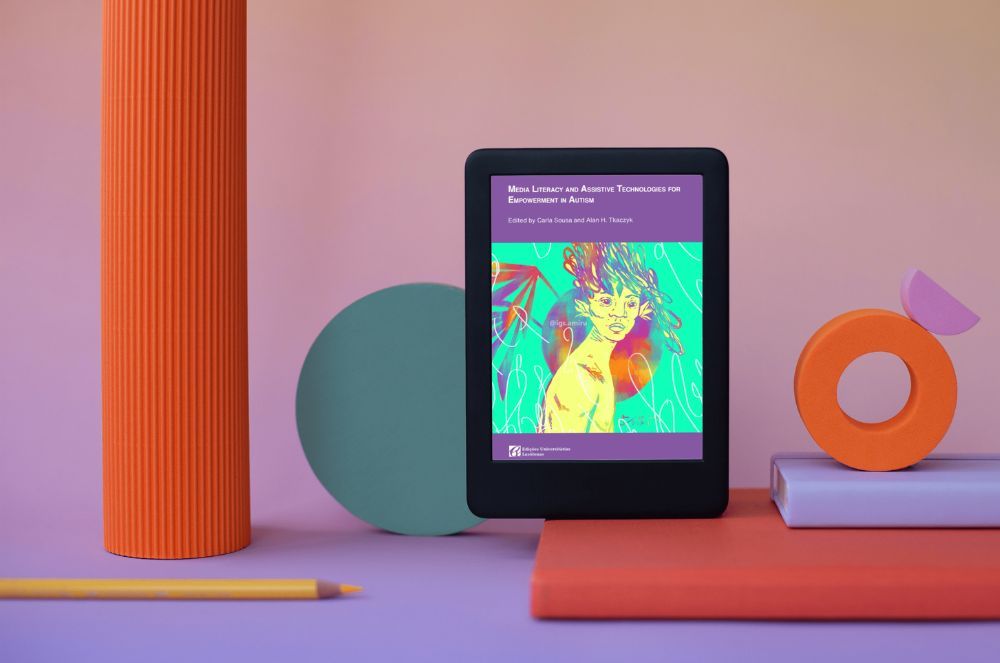COST Action a-STEP published the book “Media Literacy and Support Technologies for Autism Empowerment”

The book "Media Literacy and Support Technologies for Autism Empowerment" was launched on October 18th. The book was published within the scope of the COST Action a-STEP: advancing Social inclusion through Technology and EmPowerment - CA19104.
The book is made up of short chapters by different authors, including CICANT members Ana Filipa Oliveira, Carla Sousa, Cátia Casimiro, Conceição Costa, and Vera Pradiante aims to be a reflection on the existing evidence about the challenges and promises that emerge from the complexity that people on the autism spectrum face with the media. It also aims to provide valuable insights into the ways in which media literacy and assistive technology can enhance their abilities.
The book was edited by Carla Sousa and Alan H. Tkaczyk, and published by Edições Universitárias Lusófonas, was co-organized by the ASDigital project (2020-1-PT01-KA226SCH-094961), under the European Union's Erasmus+ Program and through the network support of the COST Action a-STEP: advancing Social inclusion through Technology and EmPowerment - CA19104, supported by COST (European Cooperation in Science and Technology).
This book is divided in two parts and below are the chapters of the CICANT researchers.
Part I – Autism, Diversity, and Media Literacy
- Introduction by Carla Sousa – READ HERE
- Decoding the Digital Landscape: Media Literacy for Autism Spectrum Disorder by Carla Sousa – READ HERE
- The Potential Role of TEACCH and PECS for Secondary Education Students with a Focus on Literacy by Ewa Litwinczuk and Carla Sousa – READ HERE
- “Desktop Adventure”: A Tool for the Development of Digital Competences in Students with Autism Spectrum Disorder by Conceição Costa and Vera Pradiante – READ HERE
- Minding the Gap: Building Bridges Through Intergenerational Media and Informational Literacy by Ana F. Oliveira – READ HERE
Part II – Assistive Technologies, Empowerment, and Inclusion.
- Gaming, Assistive Technologies, and Neurodiversity by Carla Sousa – READ HERE
- Enhancing Participatory Research with Neurodiverse Individuals: The Potential Role of Assistive Technologies in Facilitating Informed Consent by Cátia Casimiro – READ HERE
The full e-book is available in open access here.
- published 27 October 2023
- modified 13 November 2023
